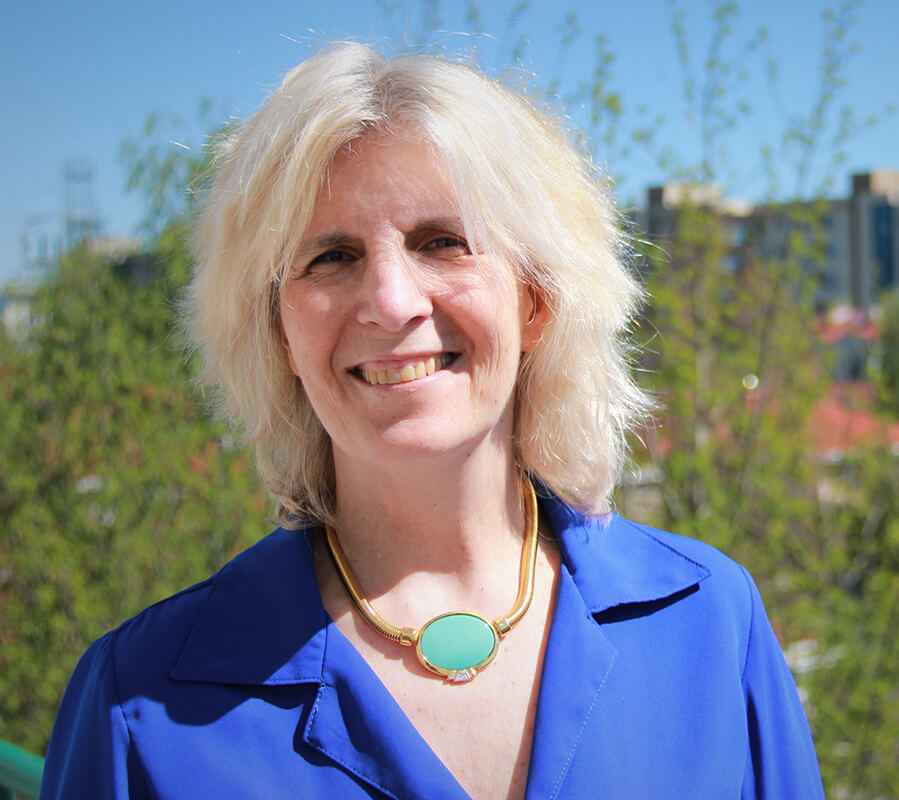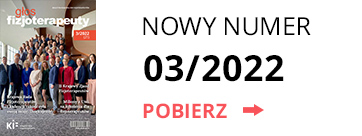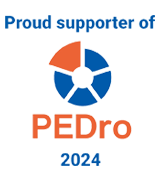We first met in February 2019. We were seeking consultation on the implementation of ICF into the documentation programme that was being created. That’s how it began.
The direction proved to be good and you were invited to Geneva to attend the meeting of an expert group¹ working on “Assessment of Functioning.”
These were two highly valuable days. We already knew what we had to pay attention to when implementing ICF on a mass scale and what challenges were ahead of us. The participation in the Rehabilitation 2030² meeting reassured us in that. A chance to meet people engaged in rehabilitation from all over the world, exchange of experiences, talks and jointly defining the directions of actions for the years ahead. This definitely motivated us to continue our work on improving the position of rehabilitation in Poland and an appropriate approach to the third indicator of health – state of functioning.
At the beginning of 2020, we were to continue our cooperation in that respect. Our plans included the exchange of knowledge and experiences with Eastern European countries, but of course now we are focusing on COVID-19 pandemic.
Yes, but I think we can say that during the pandemic a lot happened as well. We received huge support from the WHO, a lot of useful materials to distribute among our members. Also the work of our physiotherapists and positive patient stories were recognised on the international arena.³ And the brochure campaign! The demand for WHO material turned out to be really enormous, we are still receiving messages related to that both from large covid hospitals and small rehabilitation practices.
I am happy that the KIF noticed this guide for patients⁴’⁵. You translated it and started to distribute. This was a visionary step. You had a good idea at the right time, because the demand for help started to grow really fast. And the films were a valuable complement to the brochures. Some prefer this form of communication, therefore even more people in need can be reached. Another good thing is that there are a few language versions of the brochure (English, Ukrainian and Russian). This shows that you have identified the needs of the society in a proper and timely way. And at the same time, it was a really good cooperation between us. At several levels: local, regional and international ones. One of many examples, because there will be more!
That’s true. We have a lot of work to do, for example the project to assess the availability of assistive technologies⁶.
We have to survey a population that has its own needs, and the knowledge of the KIF is crucial here. You have helped us in translating technical nomenclature, provided support in recruiting people to conduct surveys. We have also completed the process of questionnaire validation and piloting. The study has just started and due to the pandemic we used mixed methodology, that is telephone interviews and direct ones. We expect the process of data gathering to end by May.
What do you expect from the KIF? How can physiotherapists become engaged?
Once the data from Poland and other countries are gathered, sent to the WHO and analysed, a study report will be created. Thus, we have to wait for the results from other countries in the European region, including Azerbaijan, Greece, Georgia, Ukraine, Tajikistan. The report should be ready in September and that’s when we are starting a large campaign about assistive technologies. We would like Poland to be a leader in promoting this report and reach all the stakeholders with it. We should remember that the first step is to identify the needs among both people with disabilities and without them and to ultimately provide appropriate support to them. It will be important to reach decision makers with this information and to develop a strategy to meet the needs in Poland.
Physiotherapists could be of help here. Every day, they work with people who require assistive technologies, they are also able to recommend some products. Why not extend these competencies? We also work with the visually impaired, who suffered from a spinal cord injury – patients with a whole range of disabilities. We know what barriers such people encounter at home, on the street, what equipment they may need to function better. We also have numerous channels for information dissemination.
We have not even started discussing a strategy for disseminating the study results and actions in that area, and the KIF has already so many ideas! What about making an information film once the report is ready? With such a big group of experienced physiotherapists and good organisation, you are really an important link in the project.
I am happy to hear that. This is very important to us too. I also have got good news. Recently, two of our members, Ernest Wiśniewski and Zbigniew Wroński, were qualified as WHO peer-reviewers. They will provide their opinions on the package of rehabilitation interventions for musculoskeletal diseases, meaning that this time it is strictly scientific cooperation.
The WHO looks mainly at knowledge and experience. These are the criteria we use to choose people to work with. Working with people like e.g. members of the KIF enriches our projects in a significant way. Thanks to that the WHO is constantly developing substantively.
We have also managed to jointly publish guidelines in the Polish language on physical activity⁷. This is also a socially important subject.
There is another significant issue connected with physical activity – WHO Healthy Cities. Through this initiative we want to take care of the environment in a way that will make people healthier and have healthy habits. So, physiotherapists should absolutely become engaged in the promotion of physical activity and initiatives to improve the quality of the environment we live in.
Physiotherapists do have such knowledge. We encourage them to even more often motivate their patients to exercise and to promote physical activity on a wider scale.
And we are glad to hear that, because each of these 70 thousand voices confirming the significance of physical activity for a human being is important. Rehabilitation is not enough, what is also important is widespread education about health. Physiotherapists should absolutely promote general well- -being of a human being, prophylaxis, and show a responsible care about public health.
What are our plans for the nearest future? What could we do together?
I think that the experience of the KIF in the area of ICF can be valuable to other countries or chambers of physiotherapists. In the nearest future, we will certainly observe the effects of COVID-19 and focus on the subject of covid, as well as the situation of the youngest patients who have had coronavirus. We will also definitely continue our efforts to promote physical activity and healthy cities that are age and disability friendly. This means that we have to understand the needs of such people even better and take a good care of them.
An excellent idea. We know e.g. that a person who has suffered a stroke and struggles with walking can have a problem crossing the pedestrian crossing at a green light because he/she takes more time to do that. So, knowing how such people function and what they struggle with, we could contribute to the development of new solutions?
Exactly! And following this line of thought further, another important subject is road safety. There are many accidents that result in the need for rehabilitation. We should prevent them. The KIF can also sign an open letter and join safety campaigns. With such a numerous group of members, you reach really a lot of people. Maybe a good idea would also be to include in the next issues of the “Voice of Physiotherapist” current information and guidance on public health, posters or educational materials.
That’s a great idea! It looks like we have plans for the nearest 10 years.
Even 20!

Dr Paloma Cuchí – Representative of the World Health Organisation in Poland. Office of the World Health Organisation. World Health Organization in Poland.
1. glosfizjoterapeuty.pl/2019/12/przedstawiciele-kif-zaproszeni-do-grupy-eksperckiej-who/
2. glosfizjoterapeuty.pl/2019/11/swiatowa-organizacja-zdrowia-who-podnosi-range-rehabilitacjii/
3. glosfizjoterapeuty.pl/2020/08/historie-polskich-fizjoterapeutow-i-pacjentow-na-arenie-miedzynarodowej/
4. glosfizjoterapeuty.pl/2020/08/wsparcie-w-samodzielnej-rehabilitacji-po-przebyciu-covid-19/
5. glosfizjoterapeuty.pl/2021/03/sukces-polskiej-wersji-poradnika-who/
6. glosfizjoterapeuty.pl/2021/03/zbadamy-dostepnosc-technologii-asystujacych-w-polsce/
7. kif.info.pl/wytyczne-who-dotyczace-aktywnosci-fizycznej-i-siedzacego-trybu-zycia-dostepne-w-jezyku-polskim/
8. apps.who.int/iris/handle/10665/341120



